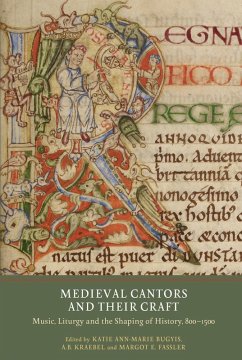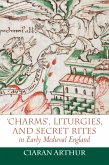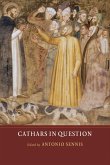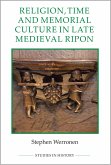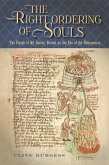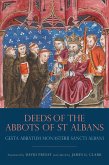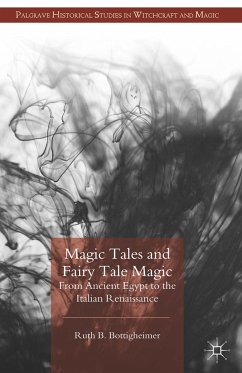First full-length study of the role and duties of the medieval cantor.
Cantors made unparalleled contributions to the way time was understood and history was remembered in the medieval Latin West. The men and women who held this office in cathedrals and monasteries were responsible for calculating the date of Easter and the feasts dependent on it, for formulating liturgical celebrations season by season, managing the library and preparing manuscripts and other sources necessary to sustain the liturgical framework of time, andpromoting the cults of saints. Crucially, their duties also often included committing the past to writing, from simple annals and chronicles to more fulsome histories, necrologies, and cartularies, thereby ensuring that towns, churches, families, and individuals could be commemorated for generations to come.
This volume seeks to address the fundamental question of how the range of cantors' activities can help us to understand the many different waysin which the past was written and, in the liturgy, celebrated across the Middle Ages. Its essays are studies of constructions, both of the building blocks of time and of the people who made and performed them, in acts of ritual remembrance and in written records; cantors, as this book makes clear, shaped the communal experience of the past in the Middle Ages.
Katie Ann-Marie Bugyis is Assistant Professor of Religious Studies at St. Martin's University; Margot Fassler is Kenough-Hesburgh Professor of Music History and Liturgy at the University of Notre Dame and Robert Tangeman Professor Emerita of Music History at Yale University; A.B. Kraebel is Assistant Professor of English at Trinity University.
Contributors: Cara Aspesi, Anna de Bakker, Alison I. Beach, Katie Ann-Marie Bugyis, Margot E. Fassler, David Ganz, James Grier, Paul Antony Hayward, Peter Jeffery, Claire Taylor Jones, A.B.Kraebel, Lori Kruckenberg, Rosamond McKitterick, Henry Parkes, Susan Rankin, C.C. Rozier, Sigbjorn Olsen Sonnesyn, Teresa Webber, Lauren Whitnah
Cantors made unparalleled contributions to the way time was understood and history was remembered in the medieval Latin West. The men and women who held this office in cathedrals and monasteries were responsible for calculating the date of Easter and the feasts dependent on it, for formulating liturgical celebrations season by season, managing the library and preparing manuscripts and other sources necessary to sustain the liturgical framework of time, andpromoting the cults of saints. Crucially, their duties also often included committing the past to writing, from simple annals and chronicles to more fulsome histories, necrologies, and cartularies, thereby ensuring that towns, churches, families, and individuals could be commemorated for generations to come.
This volume seeks to address the fundamental question of how the range of cantors' activities can help us to understand the many different waysin which the past was written and, in the liturgy, celebrated across the Middle Ages. Its essays are studies of constructions, both of the building blocks of time and of the people who made and performed them, in acts of ritual remembrance and in written records; cantors, as this book makes clear, shaped the communal experience of the past in the Middle Ages.
Katie Ann-Marie Bugyis is Assistant Professor of Religious Studies at St. Martin's University; Margot Fassler is Kenough-Hesburgh Professor of Music History and Liturgy at the University of Notre Dame and Robert Tangeman Professor Emerita of Music History at Yale University; A.B. Kraebel is Assistant Professor of English at Trinity University.
Contributors: Cara Aspesi, Anna de Bakker, Alison I. Beach, Katie Ann-Marie Bugyis, Margot E. Fassler, David Ganz, James Grier, Paul Antony Hayward, Peter Jeffery, Claire Taylor Jones, A.B.Kraebel, Lori Kruckenberg, Rosamond McKitterick, Henry Parkes, Susan Rankin, C.C. Rozier, Sigbjorn Olsen Sonnesyn, Teresa Webber, Lauren Whitnah
Dieser Download kann aus rechtlichen Gründen nur mit Rechnungsadresse in A, D ausgeliefert werden.

